The California Effect
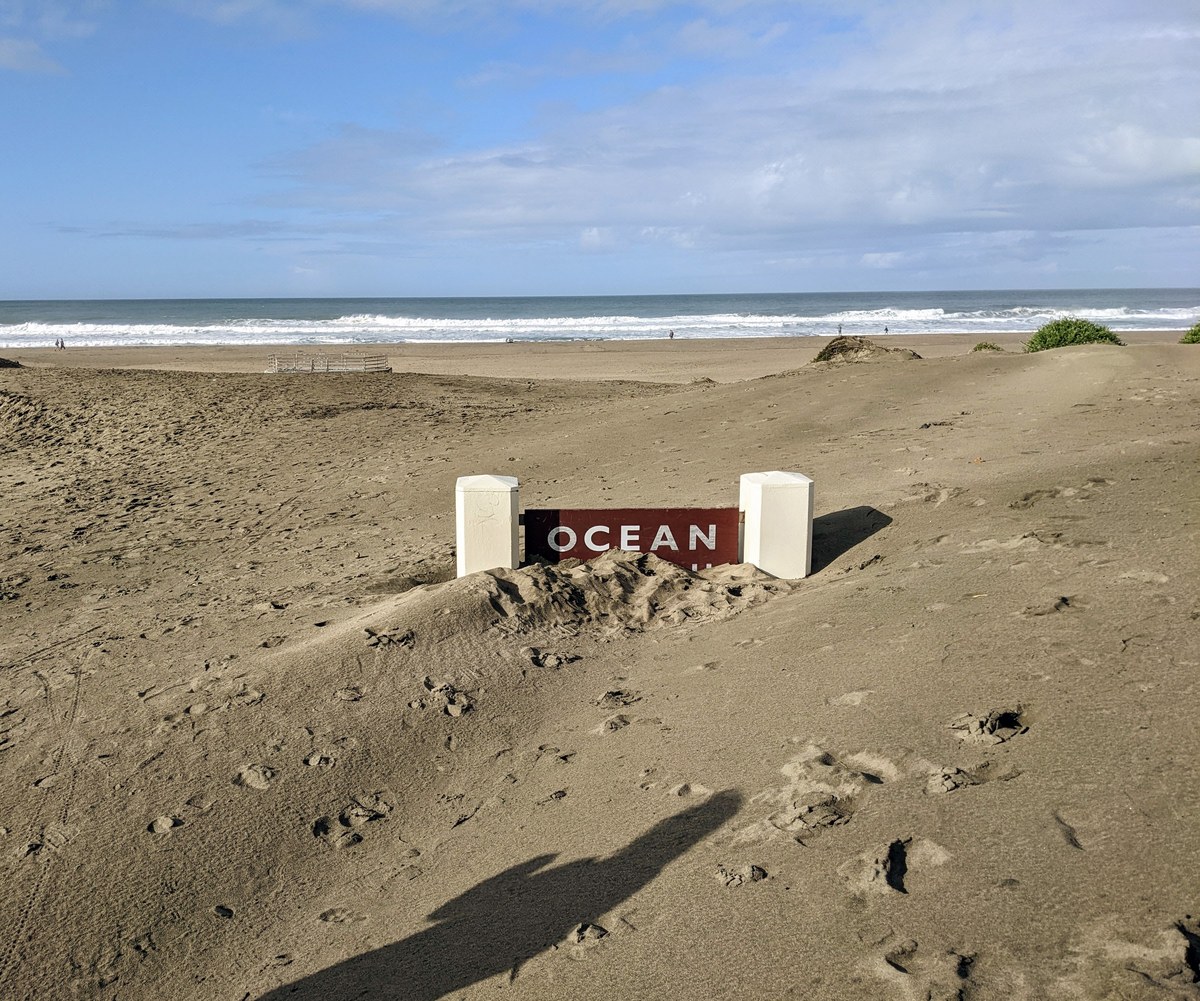
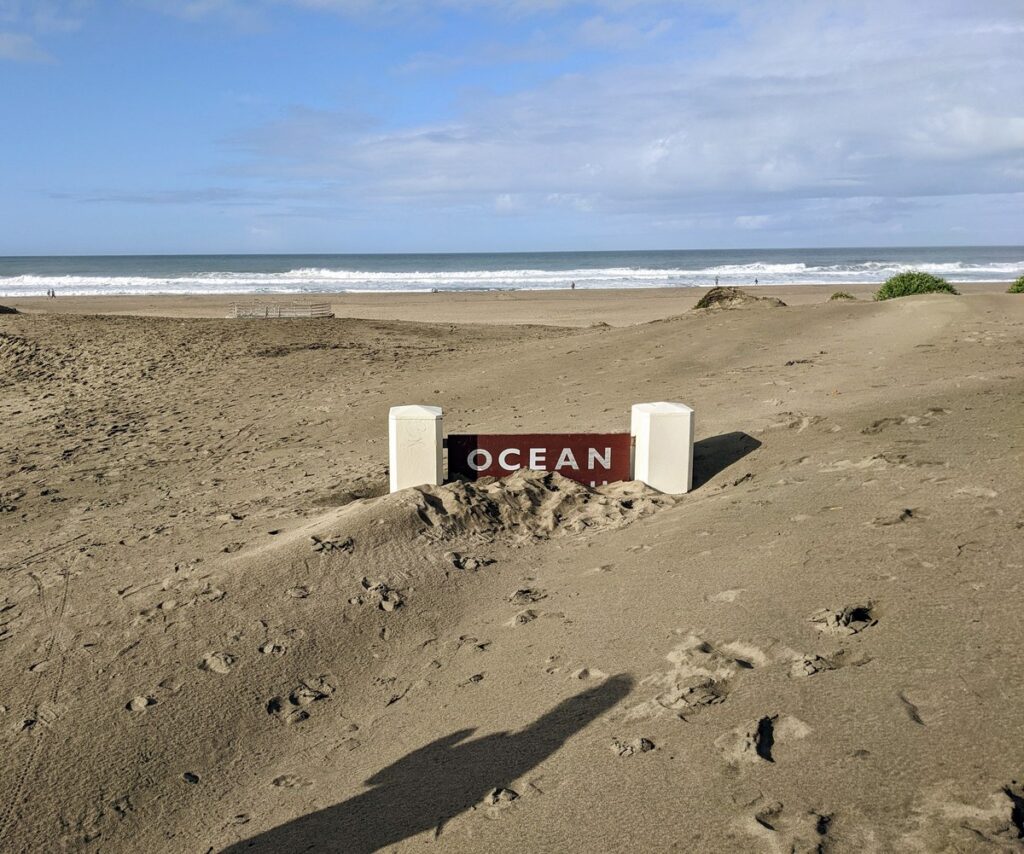
One of the reasons I don't write as often these days is that my life has gradually evolved into a Personal Finance Bubble.
The people around me have learned to be purposeful with their money, which means they now have plenty of savings and never have to stress about the stuff. Good ideas have naturally spread between the old group of friends, and new ones with similar values have drifted in over the years.
And it has happened so much that that it's almost normal for everyone in the neighborhood to have their own CNBC Make It feature*, which they don't even get around to mentioning because we're too busy helping each other with bathroom renovations or sharing the latest golden scores from Craigslist.
Because this is my everyday reality, I have mistakenly come to assume that this must be normal, and that perhaps these ideas of Mustachian living have just become universal out there in American life. Job well done MMM, time to hang up the keyboard and retire!
Until last weekend, when I took a short trip out to San Francisco and plunged deep into the astonishing reality of life outside of this bubble. And I realized that wow, we still have so much work to do. And there is so much that both sides - the Ultraconsumers and the Mustachians - can learn about human nature by studying the differences in our lifestyles.
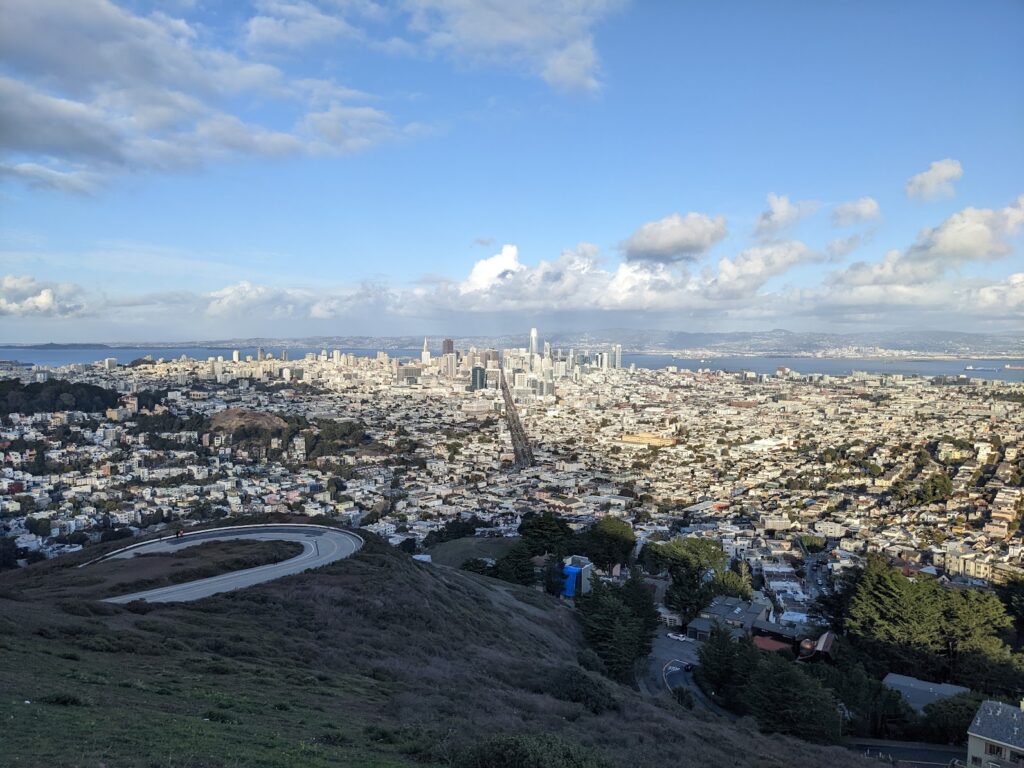 A recent winter" day at the Bay
A recent winter" day at the BayThe city of San Francisco is often called The City" by locals, but it's really part of a megalopolis known as The Bay Area". Both of these nicknames are somewhat telling because they imply that there is only ONE bay and ONE city on the planet, and thus those embody the social and spending norms to which we should all comply.
To outsiders like the rest of us, The Bay Area is a bizarre and wild human science laboratory, in which our most beautiful and most ridiculous traits are simultaneously revealed. Artificial boundaries aside, in reality it's all one teeming urban area which sprawls across ten thousand square miles and houses eight million people in an incredibly wide range of conditions.
The median house price is about $1.5 million, but that figure masks even more amazing differences because it includes bad" neighborhoods where you can get in as low as $750k as long as you don't mind a long commute and/or trash-strewn streets and keeping your house locked behind a steel gate at all times. And nicer ones with where the prices start around $3M.
Locals have become accustomed to $6.00 gasoline over the past year, $7.00 slices of pizza at a grungy restaurant if you shop around, and similarly surprising prices on most other services. One new homeowner lamented the $90-per-hour rate that his housekeeping company was now charging him to clean the house, and I enjoyed the opportunity to pick up a brunch tab for three ($148 including tip) on a nice sunny patio at a modest restaurant. A young single professional in the finance industry asked me whether he should downsize to just one seven-passenger Mercedes SUV to escape the second $1200 per month car payment from his monthly expenses (and free up a $200 parking space to boot).
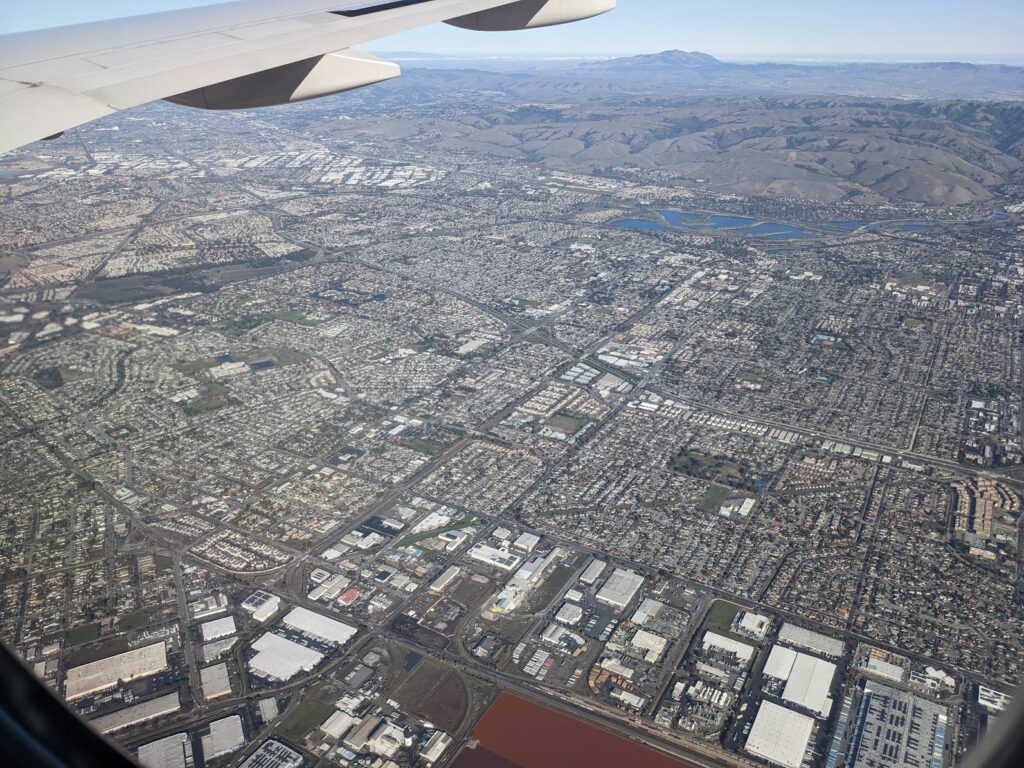
With stories like these, it's easy for the average person to just fall in line and repeat the standard Bay Area lament:
This is just a high cost of living area so it's impossible to get ahead"
But as my visit progressed and I looked in with my usual outsider's perspective, I couldn't help but notice an awful lot of holes in this argument.
Just as I do at home, I spent the majority of my leisure time with good friends, exploring beautiful parks and neighborhoods on foot. Sometimes we walked just to get to our appointments and meetings, arriving to hear stories about how bad the car traffic was or how late and expensive the Uber ride had been for the other attendees. Interesting.
Other times we hiked purposefully along cliffs and ocean shores. These days of fresh air and tens of thousands of steps left us feeling lean and healthy, with endless happy memories, enormous appetites and legs of sculpted steel. And yet they somehow cost absolutely nothing. And then we'd run into somebody who mentioned how hard it was to find time to get in shape, or how impractical it was to walk or ride a bike in a city with such steep hills. Curious.
We shopped in local grocery stores and I checked in on Costco prices in the area, and I noticed that despite the high cost of almost everything else, actual food was only a few percent more expensive than it is in the affordable middle of the country where I live. Strange.
On top of this, Northern California happens to be blessed with a climate where the leaves and flowers bloom year-round (often hanging low with free fruits and vegetables), you rarely need heating or air conditioning for your home, and bike transportation is easy year-round because you'll never encounter conditions more challenging than a bit of mildly cool rain or mist.
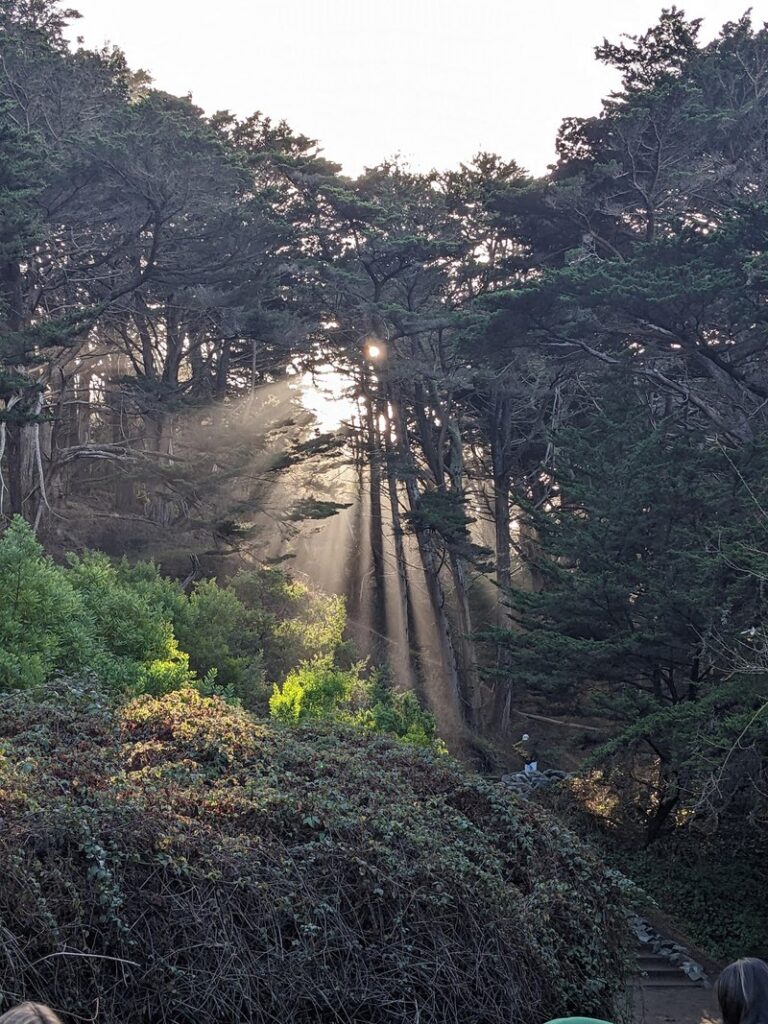
Where I grew up in Canada, people would cry tears of joy if they woke up in January to discover the streets were free from snow and shimmering with actual liquid water. We would don our swimsuits and spend the day dancing in the streets in a spontaneous block party.
But in California, everybody** dodges even the slightest weather, drives cars even though they are the slowest and most expensive way to get around, eats most of their meals at restaurants, considers a $150 bottle of wine to be a reasonable indulgence on a Friday, lives far away from work and signs up for activities that are far away from home. Which means that despite the area's nation-leading salaries, the average person is no further ahead than the rest of us.
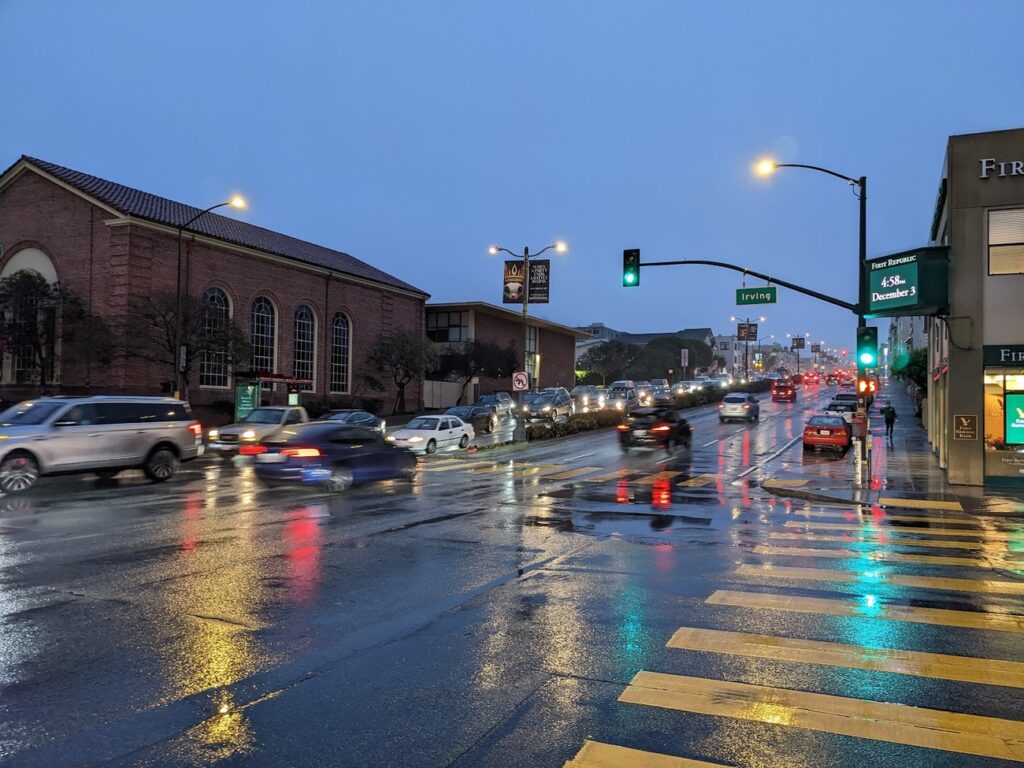
On the grander scale, the California government is a supersized example of its spendy populace: they just keep building more titanic roads and cathedral-like networks of overlapping arched bridges and ocean-sized parking lots. All to subsidize and disguise the preposterous use of the massive, stupid, personal racing lounges that people call cars", which they think they need because they haven't stopped to consider how ridiculous the whole situation is. The cars and roads ruin the vast majority of their beautiful land, turning everything into a screaming, crashing, toxic din of expensive and purely unnecessary bullshit.
Of course, all that driving causes thousands of violent deaths due to crashes, and requires hundreds of thousands of police officers, ambulances, and fire trucks to patrol. The sedentary lifestyle and the body destroying nature of sitting down in a car for several hours per day causes millions of early deaths due to heart disease and diabetes and related conditions, which requires hundreds of additional hospitals and thousands of doctors and surgeons to mop up the carnage. And they pay for it all with some of the nation's highest tax rates.
Then the people blow the rest of their income on buying even more expensive cars and gasoline to race around on the unnecessary trillion-dollar road network.
So yeah, that's the California effect. But lest you think I'm beating up unfairly on the people of this fine state, it's really just a magnified version of the Everywhere Effect. It is an astonishing wasted opportunity for the growing billions of people who are trapped in and perpetuating the illogical and self-defeating systems of our modern rich world.
But if you think of it from the opposite perspective, it is simultaneously the biggest life opportunity in human history: the understanding that all of us live in a bubble which we incorrectly perceive as normal".
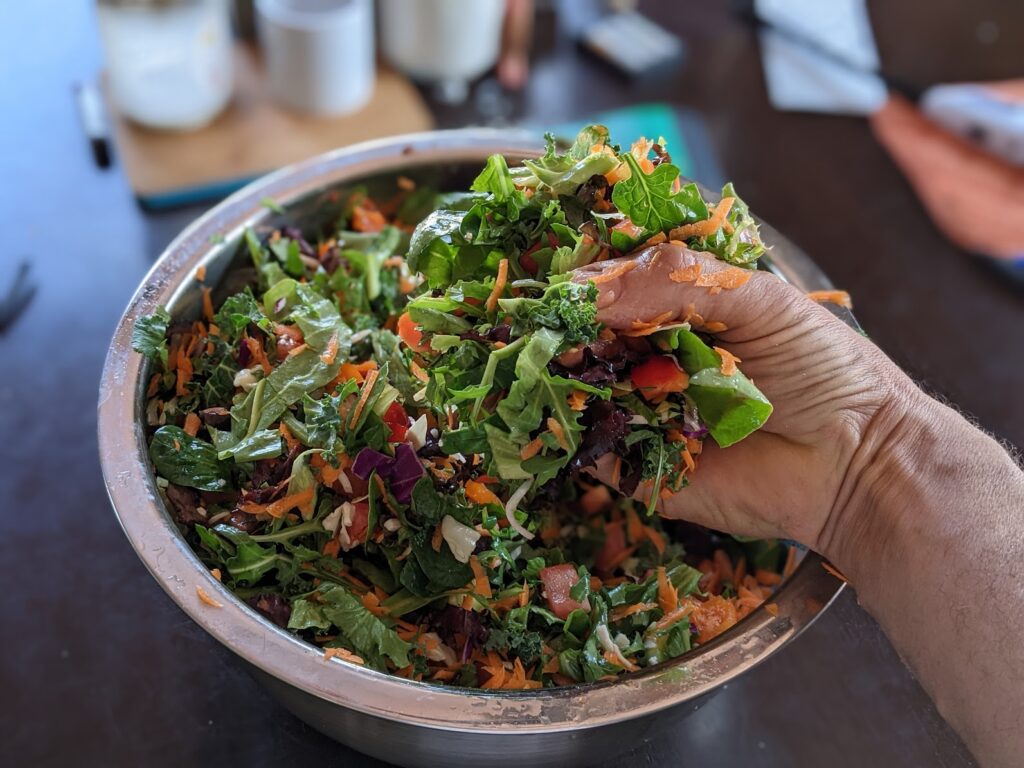
Mr. Money Mustache lives on a quiet street where millionaire early retirees still prefer old cars and do our own housework, and we think that is normal.
San Francisco professionals live in a place where 25-year-old tech workers enjoy $200,000 starting salaries, yet still have credit card debt and car loans, and they think that is normal.
In a recent podcast episode, the researcher Lex Fridman described his experience interviewing Ukrainian people in the occupied war zones of that country, asking them if they felt it was safe where they lived. They generally said it was, despite frequent bombings and the occasional deaths of friends and family members. They have already started feeling that even war is normal.
From TV addicts who binge watch for five hours per day, to ultra endurance athletes like Tony Riddel who sometimes runs two marathons per day for nine consecutive days (mostly in bare feet), to alcoholics who can consume 30 beers before lunch time, to video gamers and bluegrass banjo players and olympic gymnasts with unimaginably fast neural circuitry and muscular control, it's all the same thing: when a human brain experiences a stimulus, it quickly rewires and adapts and starts to think:
This is normal.
The ultimate lesson, then, is to remind yourself that no, your current life is not normal.
It's super weird and super specific, and you can completely change the damned thing in as many ways as you like and you absolutely will adapt and be able to handle it.
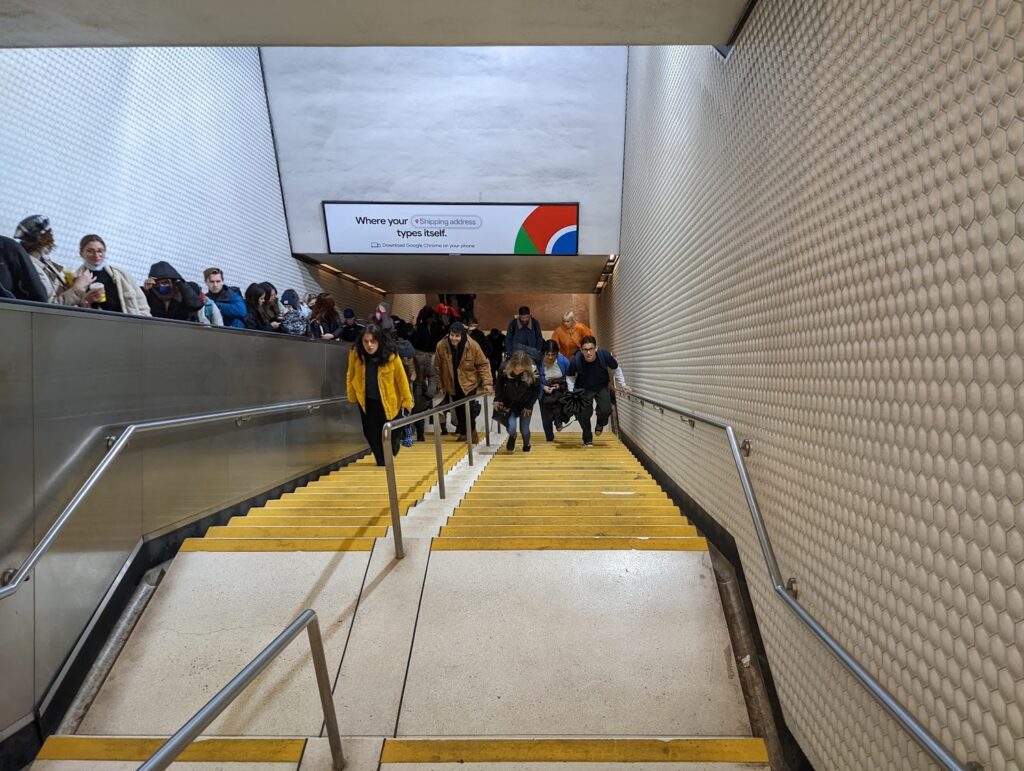 There was a huge line for the escalator but the 5-storey staircase was wide open. So of course I took the stairs. Then turned back and was happy to see people had started following my example once they saw it was normal"
There was a huge line for the escalator but the 5-storey staircase was wide open. So of course I took the stairs. Then turned back and was happy to see people had started following my example once they saw it was normal"The cool part about this is, it means if you put the right things into your life (health, fitness, sensible spending, learning, socializing, and helping people), you'll get used to those just as quickly as everyone else adapts to screen time and sodas and car loans.
Your Assignment:
Write a list of everything in your life that is expensive, bad for your physical or mental health, or both.
Consider how normal these things feel to you, but then imagine a totally different person, who is happy and successful self-actualized, who does not have or need these things in their life. Interesting. How do they do it?
Start noticing your own bubble, and study the California Effect in your own lifestyle. Where do you see ridiculousness masquerading as normalcy? How can you extract the best of life in your area, while shedding the unnecessary downsides?
How can you create an entirely new bubble of normal, that serves you better?
That simple mindset is the underlying backbone of not just Financial Independence, but the best possible life all around.
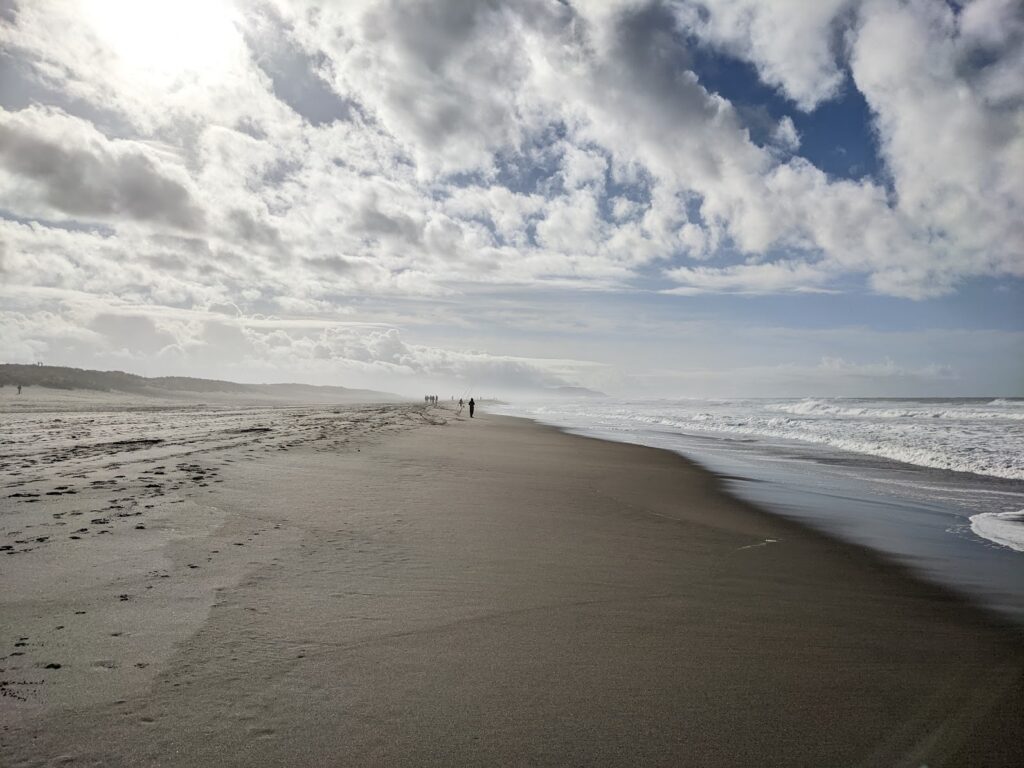 Oceanfront views and leg sculpting classes - FREE!
Oceanfront views and leg sculpting classes - FREE!Super Special Note:
The MMM Boot Camp Email Series is Finally Ready!
I spent most of the past year combing through this blog's 500+ posts, picking out the best 52, polishing them up, and arranging them into a weekly series
... which you can now join for FREE, right here with this link.
No spam or salesy stuff because I have nothing to sell. Just a year of gradual, pleasant lifestyle transformation delivered right to your inbox.
* congrats Amberly and John! Their CNBC story is available here - I recommend the written version as it has more accurate details than the video.
** Everybody. It seems this word has triggered a few sensitive souls who don't fit into this generalization, my apologies for that. Definitely not literally everyone, just the vast majority of them - as with all American cities. San Francisco is actually among the top cities where people walk to work (ten percent), but California as a whole had only about a 3.9% walk+bike to work rate according to this 2016 article on Streetsblog. While my word choice here obviously backfired a bit, it was supposed to be a deliberate attempt to play up the idea of the whole normalizing" trend. Most people see their peers driving cars to work, or even to the grocery store with a painfully crowded parking lot less than one mile away, and they adopt that behavior without evaluating whether or not there is a more effective option. When in reality, for at least 90% of potential car trips, there is.
In the Comments: What changes do you struggle with? Things you know would be good for you but seem too hard". Are they things that would be outside of the social norm for your area and peer group?